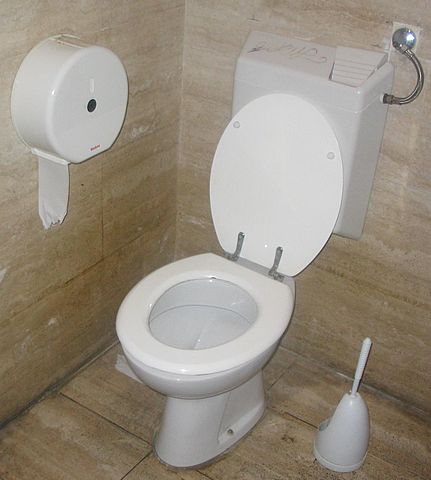Flushed With Love

The requirements for obtaining a marriage license in the state of New York are rather boring. Each person has to be at least 18 years old or have parental consent (and in no case will the state issue a marriage license to someone under the age of 14). Certain close relatives can’t marry, and people who are currently married to other people are similarly ineligible to marry someone else. And you have to fork over $40. But really, it’s pretty straightforward, as one would expect.
But to participate in a particular marriage ceremony in the Madhya Pradesh, a state in India, one needed to prove something else. The groom needed to show that his domicile comes with a toilet.
Really.
Earlier this year, Madhya Pradesh officials conducted a mass marriage ceremony as a way to provide a way for women from poor families to wed their would-be grooms. It’s a program that has been around since 2006 or 2007. The recent ceremony attracted just under 200 couples to the proverbial (but in this case, non-existent) altar, and the program has seen nearly 2,000 economically poor couples enter into marriage this way in about a year’s time. And the state is using it as an opportunity to fix another problem. By requiring that the grooms first send in a picture of their commode before issuing a marriage license, the government is incentivizing the start of a cultural change via infrastructure improvements.
According to the World Toilet Organization — yes, there’s a World Toilet Organization (and it’s actually a pretty serious charity) — there are about 2.5 billion people without access to a functioning, private toilet. Most of them live in developing regions and are very poor, and the fledgling families described above are no exception. A recent survey suggests that half of all Indian households lack a toilet, which is a major public health issue. As Fast Company points out, improperly disposed of fecal matter is the largest killer of children across the world, claiming over 1.4 million young lives a year. According to a 2007 report by Bloomberg, India, collectively, accumulated as much as 100,000 tons of “human excrement” in fields each day.
So far, we don’t know whether the toilets-for-marriage licenses program will have an effect on the problem. But the problem is significant enough to warrant this otherwise absurd-sounding requirement.
Bonus fact: Ghana is looking at another way of dealing with the same problem. But their solution doesn’t involve marriage. It involves recycling. According to GOOD, “fecal sludge” (their words) may be able to be used as an industrial fuel of sorts — basically, a (rather gross) biodiesel. The theory is that if that happens, markets would form to purchase the sludge before it became an everyday pollutant, thereby creating the financial incentive necessary to prevent haphazard dumping of latrines. The initiative is backed by the Gates Foundation, which also put together this must-watch PSA describing the problem.
From the Archives: A Spy’s Doody: You probably don’t want to read this one. It’s kind of gross. Another choice? Groom Kidnapping: Also from India.
Related: For your wedding registry, if you’re going to be a groom in one of the above-described weddings.
